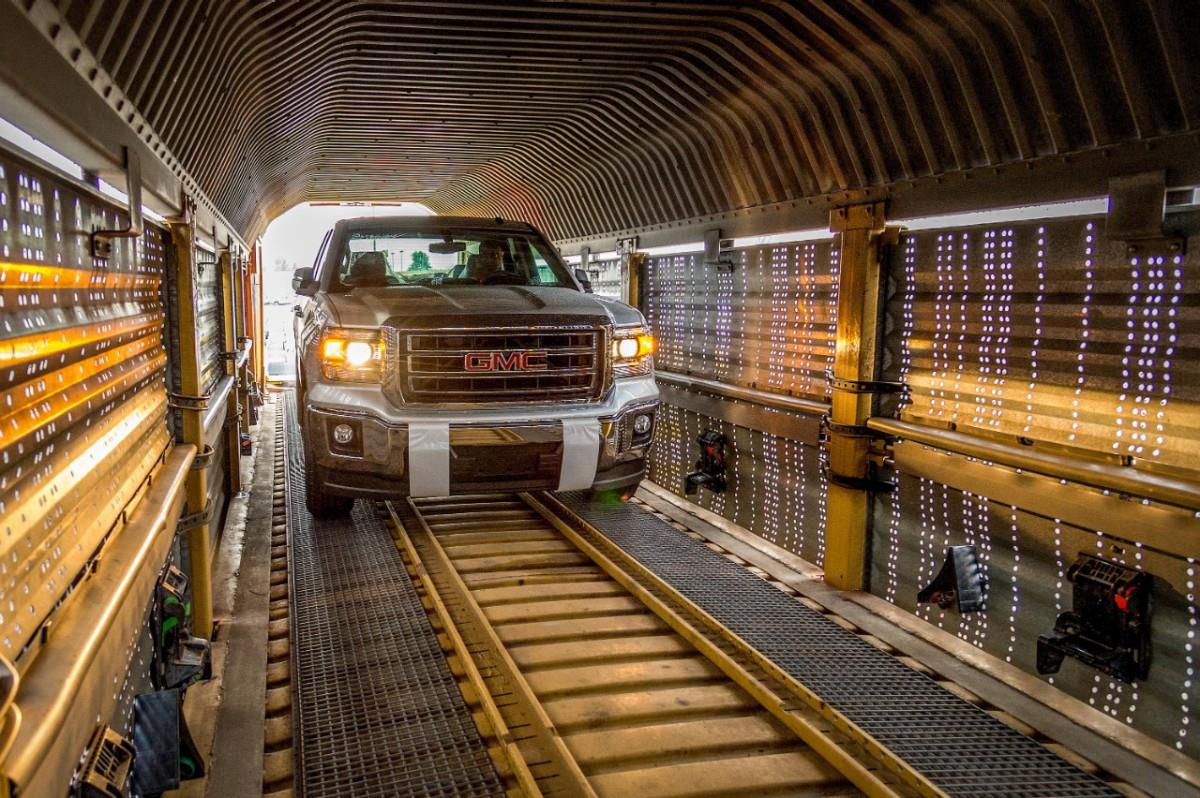What Is Required To Be An Auto Transporter?

A lot of people are moving their vehicles across the country each day. It doesn't matter if they're making a move to work, leaving college, moving into a new location or travelling for the season. The car is a must for many people. But, not all are in a position to drive on their own and prefer to hand their keys to an auto transporter who will transport the vehicle securely to its final destination. Various names refer to Auto transporters; you might have been aware of car shippers and carriers. Their objective is the same: effectively and safely transport vehicles from one location to another.
It sounds easy in theory; however, picking up, transporting and loading vehicles is a huge responsibility that can be a liability. It requires specialized education and certifications to complete the job safely. This is why professionals must get special licenses, such as motor carrier permits and a Department of Transportation (DOT) number, to operate as an auto transportation company legally.
In this article, we'll review the necessary licenses, permits, and identification numbers that transporters must obtain before starting the business. If you're planning to book an auto transportation service to move your car, we've also offered some tips to help you investigate the credentials of a shipping company. This information is valuable regardless of whether you're planning to become an individual motor carrier or looking to employ one to move your car.
Auto Transport Licences
There are a variety of various licenses, permits, and certifications required to operate any motor vehicle, and more if the car is employed for commercial use or for transporting possessions. There are many CDLs or even the DOT number; however, there's more paperwork required for a legal vehicle shipping business. We'll discuss each one of them in the sections below. Be aware that specific requirements and terms could differ from state to state.
These are the conditions that drivers must meet to be auto transporter.
- Commercial driver's licence (CDL)
- Federal Motor Carrier Safety Administration (FMCSA) registration
- Number of the motor carrier (assigned to you in conjunction with FMCSA registration)
- United States Department of Transportation (USDOT) number
Commercial driver's licence (CDL)
Alongside the most apparent requirement - a state driver's license, all auto transporters should be licensed as commercial drivers (CDL). There are three types of CDLs: Class A, Class B and Class. The CDL classification required depends on the weight of the vehicle and the kind of cargo it's transporting. A majority of auto transporters will be equipped using the Class A CDL.
To be eligible for the CDL, drivers must pass another training course and satisfy the particular conditions for commercial driver's licenses in the respective states. Find out more information about applying for a commercial driver's license.
Federal Motor Carrier Safety Administration (FMCSA) registration
The next thing on the auto transporters' checklist is registering with the Federal Motor Carrier Safety Administration (FMCSA). Commercial vehicles that transport goods across state lines need to have a registration with FMCSA. Many states must have a USDOT identification number (more details on this in the following section.) The FMCSA supervises and ensures that motor carrier safety is met in addition to commercial laws.
Insurance plays a crucial part in these licenses and registrations. "In addition to submitting applications for the operating authority, every applicant for the motor carriers or freight forwarder broker authorities need to have specific documents for legal process agents and insurance documentation in place before the FMCSA issues the authority. The filings required vary according to the kinds of registrations needed." (fmcsa.com) Motor carriers, for instance, could be required to provide public liability insurance before obtaining FMCSA authorization.
The fact that the FMCSA issues a driver's license signify that the driver is monitored and must follow the guidelines given to the drivers by the Administration.
United States Department of Transportation (USDOT) number
Numbers issued by USDOT and FMCSA registrations often have a lot in common. The USDOT numbers are required on cars that are heavier than a specified gross vehicle weight rating and are part of interstate commerce. These numbers function as a unique identifier for recording and monitoring a motorist or transport company's safety data audits, compliance reviews, vehicle inspections, and investigations into crashes.
Currently, 47 states require that you have a USDOT number, not just for commercial vehicles operating in interstate commerce but for intrastate traffic too. With these requirements in mind, you'll need to apply for a USDOT number to be an auto transporter who is fully licensed.
Motor Carrier Number
The motor carrier (MC) numbers are not to be misunderstood to identify the porters who transport regulated goods. That is, DOT numbers identify a company that operates between states, whereas the MC number indicates that they're licensed to carry goods across states. Since auto transporters are required to move vehicles from one state to another as well, perhaps across the entire country, it’s not uncommon to see them carry both an MC number and a DOT number.
These are the fundamental prerequisites you'll require to become an auto transportation company. If you're interested in learning more about specific registrations or permits or are ready to apply, check out the FMCSA website. You'll find instructions on how to sign up for registration with FMCSA and USDOT, how to apply for an MC number and other information to help you get up and running.
Brokers of Auto Transport
When a driver is authorized to be an auto transportation company, they can decide to join the services of an auto transport broker. Auto transport companies like RCC can offer large networks of car carriers that cover a variety of locations across the United States. Customers who require shipping their cars often opt to partner with an agent to avoid the hassle of calling carriers directly and comparing rates. In many instances, the broker will offer an affordable rate because they have pages competing for business.
Like individuals and transport companies, Auto transport brokers should be licensed by the FMCSA. A reputable auto transport broker is registered with the Department of Transportation and the FMCSA and will be issued individual USDOT identification numbers. They will frequently check that the companies they work with are insured and licensed, so the broker and their clients can be confident that their vehicles are safe.
Auto transport brokers must be licensed and bonded with their licenses and licenses. Bonds are legally required, which ensures that car transporters receive a fair amount for their work. The DOT and the FMCSA mandate bonding and licensing to ensure that all the people involved in the process of transporting vehicles are legally operating and can be held accountable for their actions.
The purpose of licenses and permits is to verify that the driver operates within the rules of the law and is responsible for all vehicles they possess. Licenses and permits are a great way to monitor and track commercial drivers nationwide and ensure that they are legitimate firms. Checking the validity of a car shipping license is a crucial step in selecting a trustworthy auto transport business.
How To Choose A Reliable Auto Transport Business?
Once you've established that the company you're working with is insured and licensed to transport your vehicle, You'll need to learn what sort of experience you're likely to receive while working with them.
The most popular and efficient way to find out about a company is by reading the reviews of its customers. Read online reviews about the company, bearing in mind the number of studies as well as the average rating of the company. Also, take note of clients who have made similar moves to yours. Does the company have experience in moving the type of vehicle that you're using? If you have to transport unique cars, such as an ATV, motorbike, or ATV, does the company have a track record of completing these transports? Check to see if your chosen business is best for your needs.
The Better Business Bureau (BBB) is another source that can tell you what kind of customer experience you can anticipate. The BBB maintains a log of the company's reviews and performance and gives them a score. They do not typically keep records of a transport company's certificates or licenses; however, they can tell whether a business is operating honestly and keeping its commitments.
Are You Ready To Ship Your Car?
Once you've figured out where to look for the most reliable auto transport business, you can make your move without trepidation. Whether you're moving across state lines or the nation, RCC has a thoroughly checked network of transporters ready to move your car, truck, SUV, or any other type of vehicle.
RCC is an authorized and bonded transportation management firm registered with the USDOT (#1673578) and FMCSA licensed broker number 229816. The vehicle you drive is protected by the cargo company when you ship through RCC. However, we also offer our contingent cargo insurance, covering you for a maximum of $250,000. More than 64,000 reviews from customers, along with our a plus rating with the BBB, attest to our history of accomplishment. Get started by getting a no-cost instant estimate, or call an advisor for vehicle shipping at 877-873-5512 to get more information.
Popular Posts
-

December 12, 2022
How Does RCC Auto Transport Works? -

December 15, 2022
What Happens When you need to… -

December 14, 2022
How To Ship A GMC Sierra -

December 13, 2022
How to Ship Small Equipment
